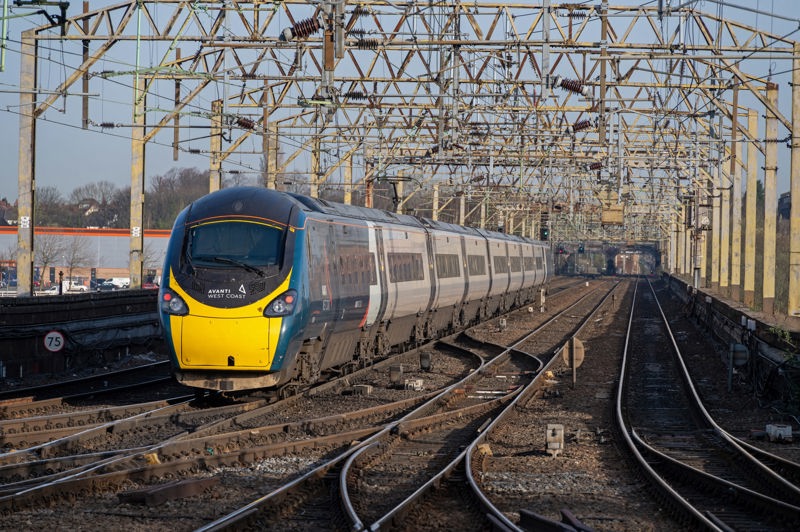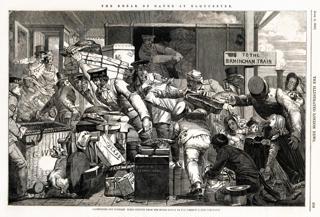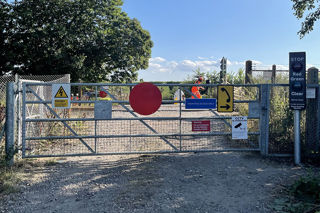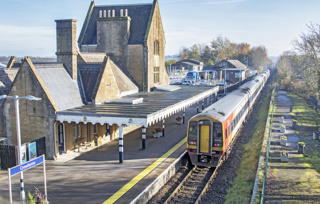
Train operators have paid out £138 million in Delay Repay compensation in the past year. Avanti West Coast and LNER paid out the most, with both paying just over £32 million in the 12 months to the end of July.

Train operators have paid out £138 million in Delay Repay compensation in the past year. Avanti West Coast and LNER paid out the most, with both paying just over £32 million in the 12 months to the end of July.
The Department for Transport said several factors had contributed to the increase in compensation payments, including adverse weather events and the increase in passenger journeys.
Great Western Railway’s woes on the Great Western Main Line have contributed to its near-£30m total. It paid out just over £15m in the previous 12-month period, as it processed just under 1.4 million claims.
In December 2023, Network Rail was ordered by the Office of Rail and Road (ORR) to produce an improvement plan focusing on the heavily used Thames valley section of the route, which had contributed to up to two-thirds of the delays seen on the line. This improvement plan was accepted by the ORR earlier this year.
However, severe weather has affected GWR’s punctuality more than most in the past 12 months, with 135,000 train delay minutes lost to it over two quarters in 2023. Only ScotRail recorded a higher figure.
Infrastructure problems encountered on the network also contributed considerably. On average, just over 60% of delay minutes could be attributed to Network Rail rather than the train operator, with LNER (for example) responsible for just 16% of delays on its network - one of the lowest recorded.
A Rail Delivery Group spokesperson told RAIL: “We know how important reliability and punctuality is to customers.
“The rail industry is working hard to improve both punctuality and reliability, but unfortunately delays and cancellations can occur due to various factors such as weather and flooding, train faults, infrastructure issues such as track or signalling faults, staff availability and industrial action, as well as external incidents such as trespass.”
Delay Repay compensation claims totalled just over £100m in 2022-23 - a large increase on the £39m paid out in 2021-22, although COVID played a significant part in the lower numbers, with the higher passenger numbers recorded over the last two years an indication of the current stresses being put on the network.
On the West Coast Main Line, Avanti West Coast has struggled with punctuality and delays over recent years. It was hit with its own improvement plan by the DfT in 2022, designed to drastically improve services.
While performance and the average punctuality since the instigation of the improvement plan had seen an uptick, AWC’s punctuality scores dipped to 41% in the last quarter. The current average for all operators is 70%.
However, understanding the true picture of the operator’s performance from these statistics remains difficult, given each operator’s slice of the network.
This is because long-distance operators such as Avanti West Coast and LNER are more likely to be affected by delays of 15 minutes or more, given the restraints on the timetable. They are also more likely to be affected by infrastructure issues, while given the sums involved with long-distance main line travel, it is likely that passengers are more likely to claim as opposed to regional and suburban services. In the case of LNER, it is also carrying more passengers than pre-pandemic.
Both AWC and LNER also highlight that automatic Delay Repay increases the number of claims, with ORR data confirming that 99.3% of the 2.3 million compensation claims between April 1 and July 20 2024 were paid within 20 working days.
Some claims, however, may never be processed, with the true number of passengers affected not clear.
Passengers are entitled to compensation from all the train operating companies (TOCs) for delays of 30 minutes or more, with 13 of the TOCs offering compensation for delays of 15 minutes or more. A DfT study found that a quarter of eligible passengers were not aware that they could claim.
Mike Hewitson, of independent passenger watchdog Transport Focus, said: “While we understand that passengers would prefer for their train to arrive on time, we are glad to see them receiving the compensation that they are entitled to when things go wrong. We urge all passengers to claim in the event of a delay, as millions of pounds remain unclaimed each year.”
Although the TOCs and Network Rail are largely at fault for any delays, the taxpayer currently foots the bill for the Delay Repay scheme. This arrangement has been in place since the pandemic, as services were operated by the state.
The RDG said it recognises that work is needed within the industry to bring the number of compensation claims down.
“We know this isn’t acceptable to those who rely on the rail network for work, business travel or for leisure, and everyone across the railway is working hard to make sure that train services are reliable and punctual for customers,” it said.
“A number of cross-industry groups are focused on delivering solutions to the main causes of delays and cancellations.”
Login to continue reading
Or register with RAIL to keep up-to-date with the latest news, insight and opinion.

















Login to comment
Comments
No comments have been made yet.